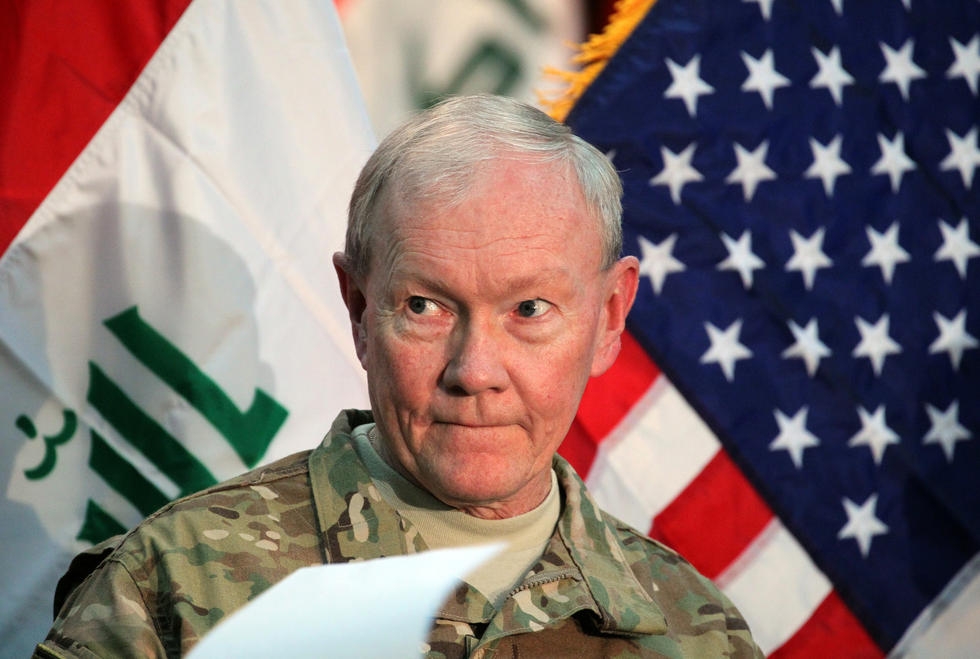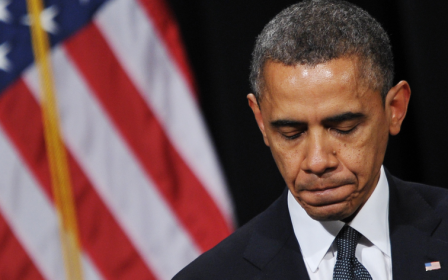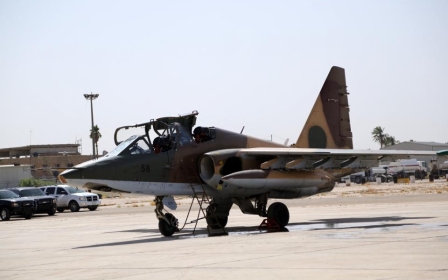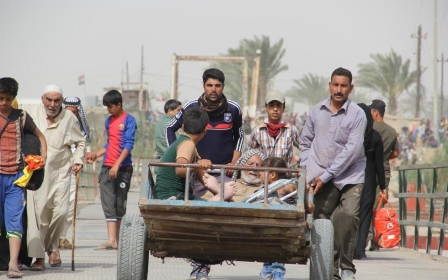US may open more bases in Iraq

The US might establish more bases in Iraq following the model of the Taqaddum air base in Anbar province, the chairman of the Joints Chiefs of Staff said on Thursday.
The comments by General Martin Dempsey came one day after the Obama administration announced it is going to deploy 450 troops to be stationed at the airbase.
Pentagon spokesman Colonel Steve Warren told reporters that his agency is actively considering where to establish other bases but the assessment would be informed by the achievements in Taqaddum.
Warren also pointed out that the base will play a key role in connecting the Iraqi government with Sunni tribes.
Noting the difference between the newly opened base in Taqaddum and other American bases in Iraq, he said the mission is not a basic combat training one but rather an "advise and assist" mission.
The Iraqis recently established a command and control structure in Taqaddum dedicated to Sunni tribal outreach, and according to Warren, US advisers who will be deployed there will be integrated into that structure.
Iraqi forces have trained several hundred Sunni tribal forces and the US announcement Wednesday to send 450 troops was a result of a long assessment about how to ramp up the number of Sunni forces fighting Daesh.
“The operation in Taqaddum could potentially one day in the future [be] expanded to do training - basic combat skills training, as well,” Warren said.
When asked how US forces would facilitate relations between Sunni tribes and the Iraqi government, he said Sunni tribal leaders would be invited to the base to discuss the benefit of joining Iraqi forces in fighting the Islamic State (IS) militants.
The additional troop deployment will bring the total number of US forces in the country to more than 3,500.
The plan is an attempt to offset recent battlefield losses and help Iraqi forces prepare for a campaign to retake Anbar province from IS militants.
Shia militia rejects US reinforcements
Meanwhile, the Iraqi Shia militia al-Hashd al-Shaabi opposed on Thursday the US decision to deploy more forces in Anbar province, citing it is an attempt to “steal the militia's upcoming victory”.
“The security situation of Anbar province does not require sending more American advisers to the military bases,” al-Hashd al-Shaabi spokesman Karim al-Nouri told Anadolu Agency.
Al-Nouri stressed that al-Hashd al-Shaabi forces have the capacity to “liberate” Anbar province without the international coalition’s support.
“The decision of the US has two goals. The first is to contain the criticism against Washington that it is to blame for the fall of [Anbar provincial capital] Ramadi to Daesh,” al-Nouri said.
“The second goal, which is more distinct, is to send more American military advisers to Anbar to steal the victory that will be achieved by the hands of al-Hashd al-Shaabi forces in the cities of Ramadi and Fallujah.”
Ramadi fell to IS on 14 May, with US officials initially scrambling to minimise the significance of the strategic defeat.
But Defence Secretary Ashton Carter strongly critiqued the performance of Iraqi forces against IS last month, questioning if they have the determination to meet the militants in the battlefield.
A year on, IS has displayed huge resilience while Iraqi forces are still underperforming, leading to increasing questioning of the White House's strategy.
"I support the tactical move the president is taking [by sending more stroops], but where's the overarching strategy," asked House of Representatives Speaker John Boehner.
Several officials in Anbar said Iraqi and foreign warplanes had bombed targets in and around Ramadi on Thursday.
Baghdad's operations so far have focused on severing IS supply lines in Anbar, which has a long border with regions of Syria the mililtant group also controls.
Iraqi Prime Minister Haider al-Abadi has said a ground operation inside Ramadi was made too dangerous by the militants' systematic use of huge truck bombs.
IS marks 'easy' Mosul capture with video epic
Meanwhile, IS on Thursday marked a year since its capture of Mosul with a film documenting the founding moment of the "caliphate" that triggered an international war.
A year after the fall of Iraq's second city, an ever-broadening conflict was in full swing, with IS affiliates and smaller groups pledging their allegiance and spreading across the region, causing Washington to be drawn ever deeper into the quagmire.
The video glamorises the assault IS launched in Iraq last year as an epic conquest, with previously unreleased footage of civilians welcoming the militants and elated prisoners being freed.
The 29-minute production also further documents the debacle of Iraq's security forces last year and recounts the IS fighters' surprise at how easily they took Mosul.
"It was unthinkable that the advance would be so much greater than was planned," said the narrator of the video, which was published on social media.
He said IS had planned to take control of areas on one side of the city in order to launch a further push later, only to discover that the other bank of the Tigris "was empty of (Iraqi) soldiers before the men of the Islamic State arrived".
The group's offensive in Iraq began on 9 June. By the following day, IS-led forces had overrun Mosul, a city of two million people.
The blitz led to the displacement of hundreds of thousands of Iraqis and saw the collapse of multiple divisions in an army the US had spent years and billions of dollars training and equipping.
Three years after ending its occupation of Iraq in 2011, Washington was back to training Iraqi troops as part of its effort to help Baghdad roll back territorial losses.
New MEE newsletter: Jerusalem Dispatch
Sign up to get the latest insights and analysis on Israel-Palestine, alongside Turkey Unpacked and other MEE newsletters
Middle East Eye delivers independent and unrivalled coverage and analysis of the Middle East, North Africa and beyond. To learn more about republishing this content and the associated fees, please fill out this form. More about MEE can be found here.




